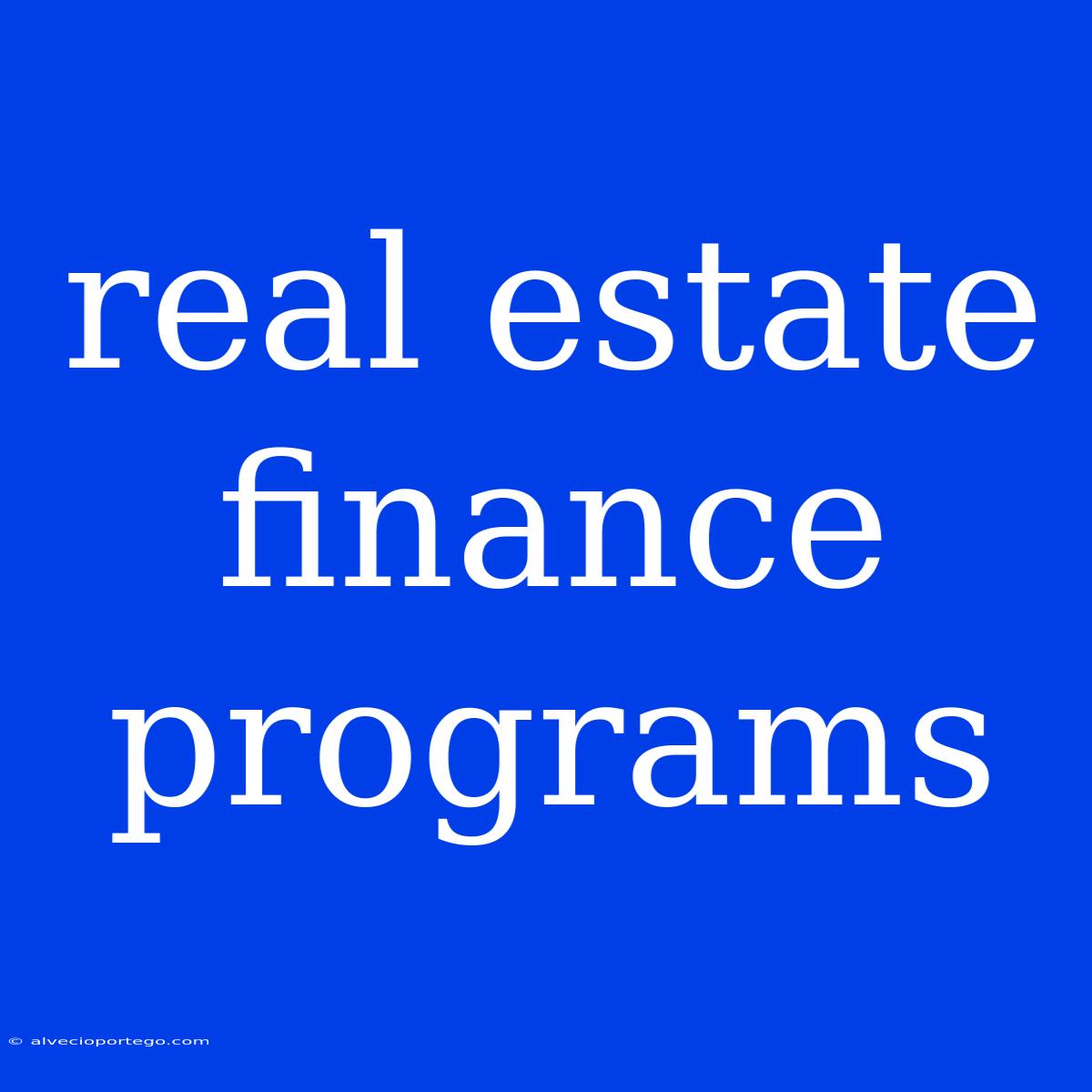Real Estate Finance Programs: A Guide to Funding Your Property Dreams
Real estate is a lucrative investment, but it often requires significant capital upfront. Thankfully, various real estate finance programs can help you secure the necessary funding to purchase, renovate, or invest in properties. This article explores some of the most popular programs and how they can help you achieve your real estate goals.
Understanding Real Estate Finance Programs
Real estate finance programs are designed to make the process of obtaining a loan for real estate purchases more accessible and affordable. They often come with unique features, terms, and benefits tailored towards specific types of properties or borrowers.
Here are some key things to consider when exploring real estate finance programs:
- Loan Types: There are numerous loan types available, each with specific requirements, interest rates, and repayment terms. Common types include conventional mortgages, FHA loans, VA loans, USDA loans, and commercial loans.
- Eligibility Criteria: Each program has eligibility criteria based on factors like credit score, income, debt-to-income ratio, and property type.
- Loan Terms: This includes the interest rate, loan term (length of repayment), and any associated fees.
- Down Payment Requirements: The required down payment percentage can vary significantly depending on the program and loan type.
Popular Real Estate Finance Programs
1. Conventional Mortgages: These are the most common type of home loan. They are offered by private lenders and usually require a higher credit score and larger down payment.
2. FHA Loans: Backed by the Federal Housing Administration, these loans are designed to help first-time homebuyers and borrowers with lower credit scores. They typically require a lower down payment and offer more flexible credit requirements.
3. VA Loans: Offered to eligible veterans, active-duty military personnel, and surviving spouses, VA loans provide the benefit of zero down payment and competitive interest rates.
4. USDA Loans: These loans are designed to promote homeownership in rural areas. They offer favorable interest rates and often require a lower down payment than conventional mortgages.
5. Commercial Loans: These loans are intended for financing commercial properties, such as office buildings, retail spaces, and multi-family units. They usually have stricter credit requirements and require a substantial down payment.
6. Rehabilitation Loans: These programs assist borrowers in financing the renovation or rehabilitation of existing properties. They are often offered by government agencies or non-profit organizations.
7. Investment Property Loans: These loans are designed for individuals looking to purchase properties for rental income or future resale. They typically have higher interest rates and require larger down payments compared to primary residence mortgages.
Benefits of Real Estate Finance Programs
- Access to Capital: These programs enable individuals who might not have the full purchase price to acquire real estate.
- Lower Down Payments: Some programs allow for lower down payments, making homeownership more attainable for a broader range of borrowers.
- Favorable Interest Rates: Several programs offer competitive interest rates, potentially reducing monthly mortgage payments.
- Flexible Credit Requirements: Certain programs are more lenient with credit scores and income requirements, making it easier for individuals with less-than-perfect credit to qualify.
Finding the Right Program for You
Finding the best real estate finance program for your specific needs requires careful research and consultation. It is crucial to:
- Assess your financial situation: Evaluate your credit score, income, debt-to-income ratio, and savings.
- Define your real estate goals: Determine the type of property you want to purchase or invest in and the level of funding you require.
- Compare program terms: Carefully evaluate loan types, interest rates, down payment requirements, and other program details.
- Consult with a mortgage lender or financial advisor: They can provide valuable guidance and help you choose the most suitable program.
Real estate finance programs are powerful tools that can pave the way to achieving your property dreams. By understanding the various programs and carefully evaluating your options, you can find the right financing solution to help you successfully navigate the world of real estate investment.

